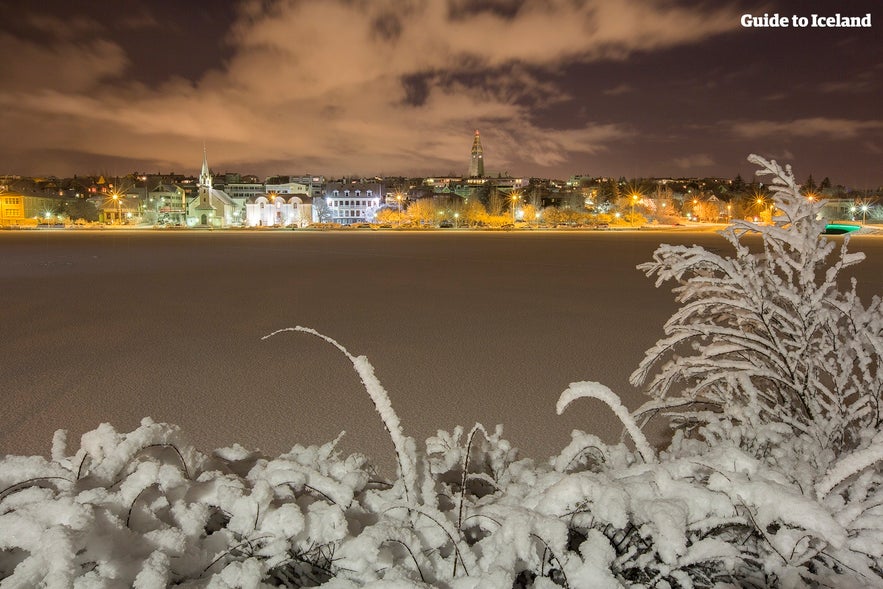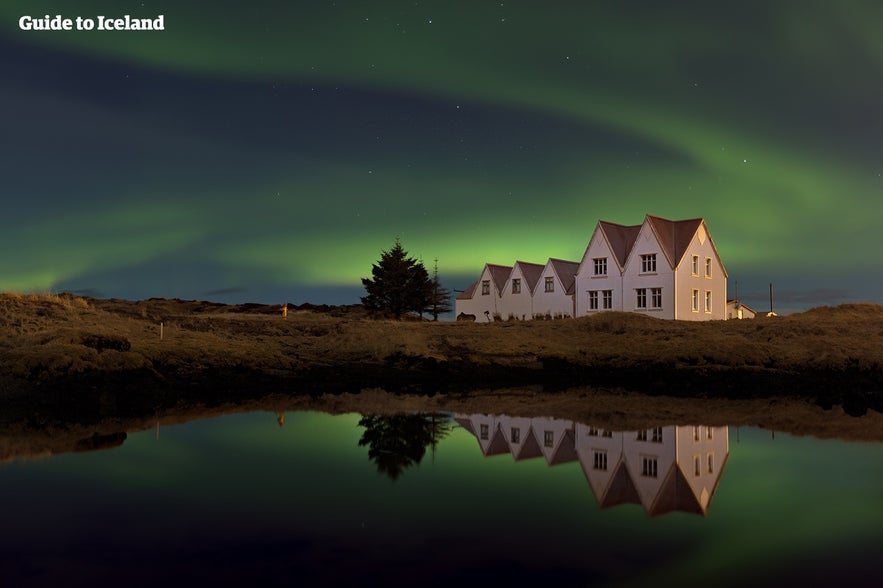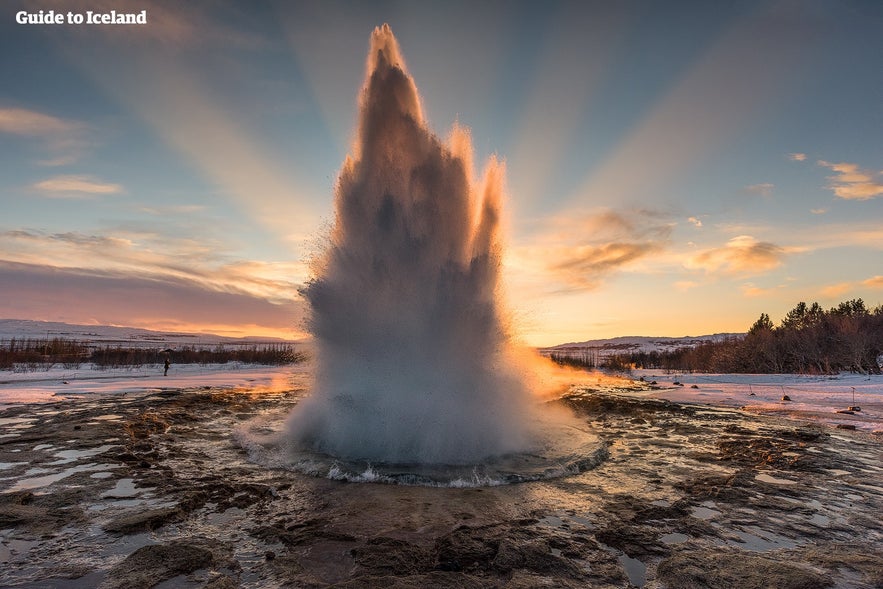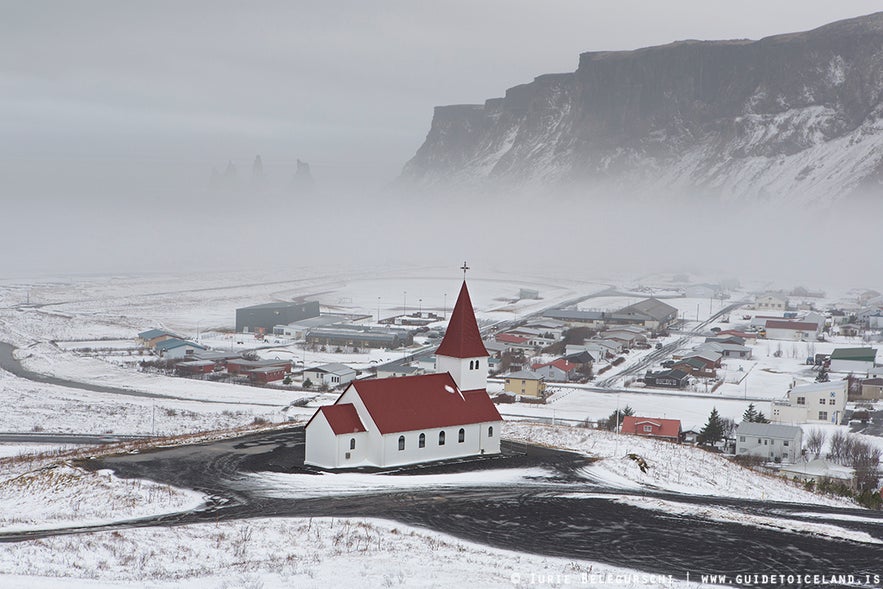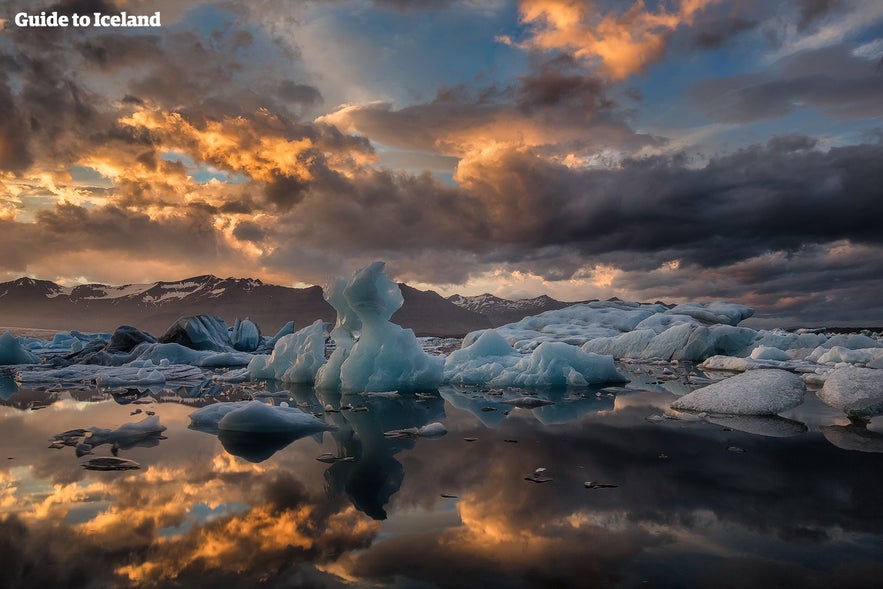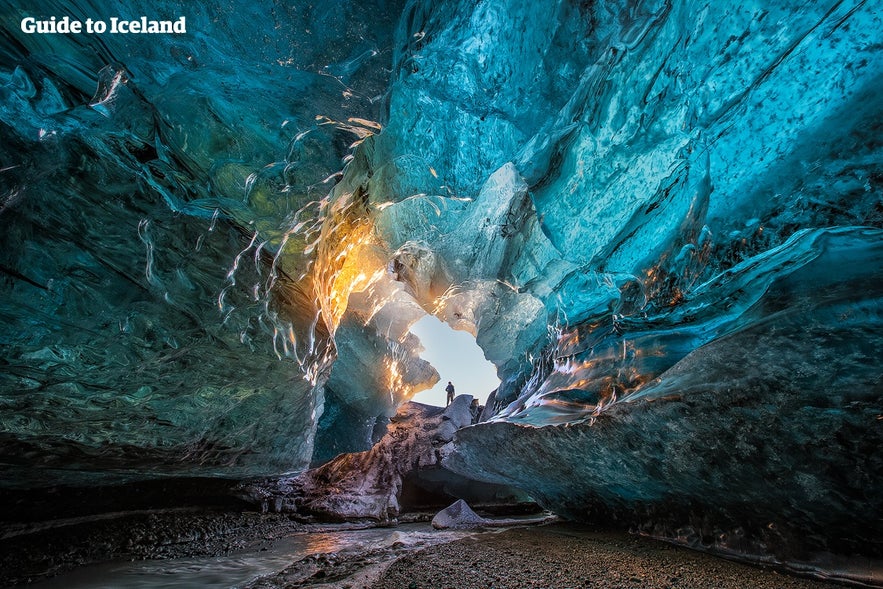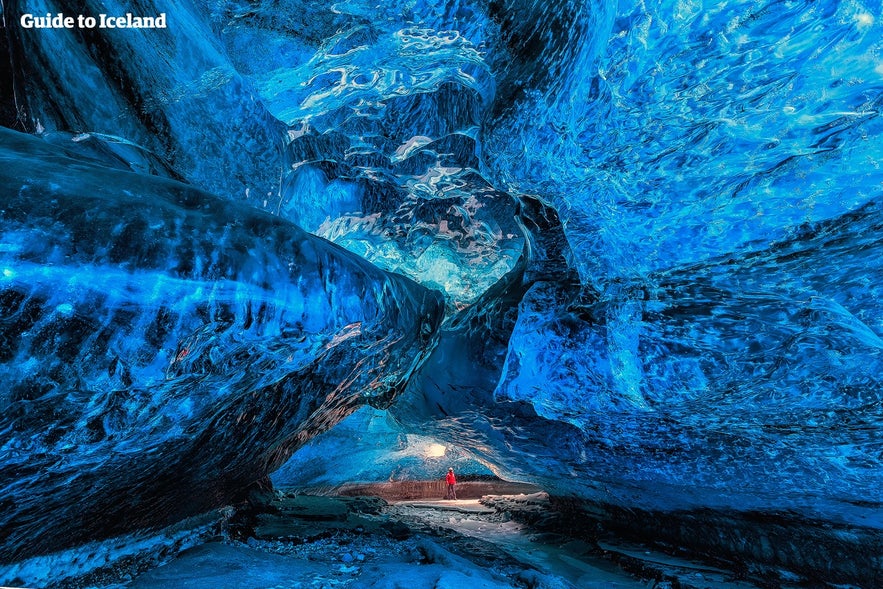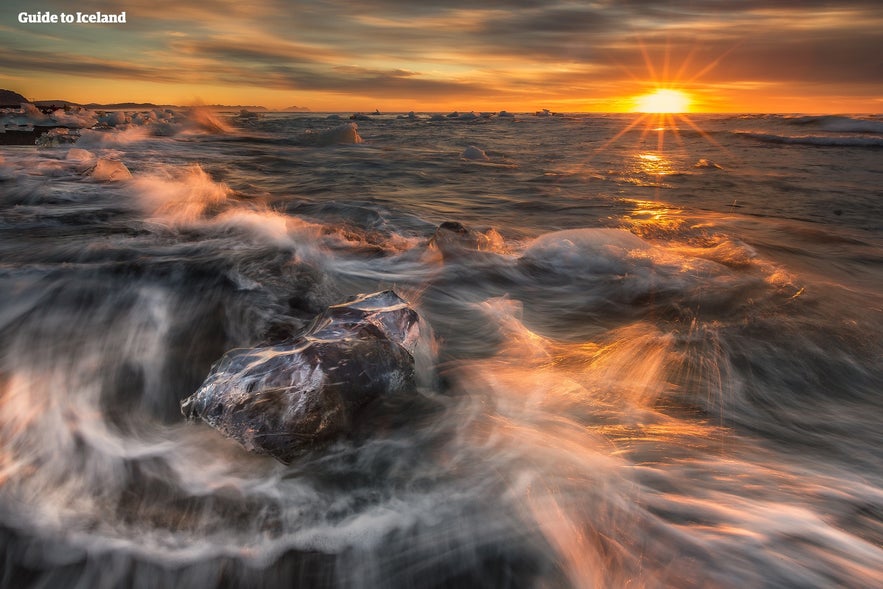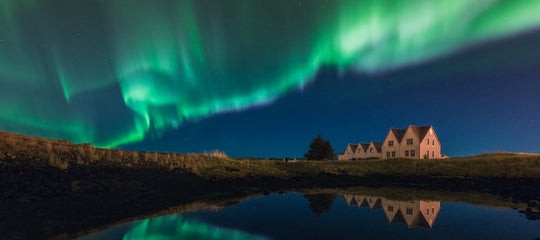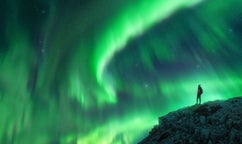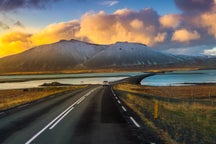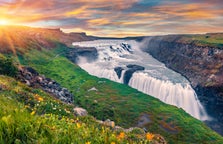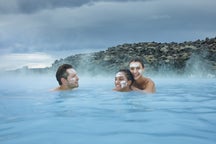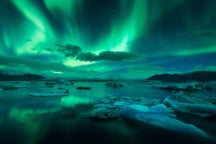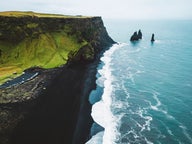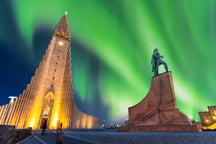Our ultimate winter itinerary for Iceland is designed to fulfill the expectations of anyone seeking the very best Iceland has to offer. This 5-day adventure is a journey into a world of diversity, combining the comforts of a city break and the thrills of an excursion on the open road.
- Read about Iceland in January and Iceland in December
Daylight and Weather
Although Iceland is generally considered to be a summer destination, traveling there in the wintertime has numerous atmospheric, scenic, and practical benefits.
Why You Can Trust Our Content
Guide to Iceland is the most trusted travel platform in Iceland, helping millions of visitors each year. All our content is written and reviewed by local experts who are deeply familiar with Iceland. You can count on us for accurate, up-to-date, and trustworthy travel advice.
Not only does the island transform into a magnificent winter wonderland when cloaked in its costume of frost and snow, but there is also less traffic on the highways, the crowds at popular attractions are much smaller, and of course, the northern lights in Iceland only appear in the black skies of the winter months.
In contrast to the summer days of perpetual daylight when the sun in Iceland hardly sets, the days of mid-winter contain 4-5 hours of daylight.
The very best way to make the most of your time, therefore, is to rent a car and plan your drive following the limited amounts of light.
Use the morning darkness to travel to your destinations and enjoy the tranquil stillness of the dark afternoons and evenings by relaxing in the best swimming pools in Reykjavik or by visiting some of the city's bars and restaurants.
| Month | Sunrise Average | Sunset Average |
| January | 11:10 AM | 3:44 PM |
| February | 9:55 AM | 5:16 PM |
| March | 8:21AM | 6:59 PM |
| April | 6:42 AM | 8:23 PM |
| May | 5:00 AM | 9:53 PM |
| June | 3:15 AM | 11:39 PM |
| July | 3:06 AM | 11:56 PM |
| August | 4:35 AM | 10:31 PM |
| September | 6:16 AM | 8:36 PM |
| October | 7:37 AM | 6:56 PM |
| November | 9:24 AM | 4:57 PM |
| December | 10:46 AM | 3:47 AM |
Remember also that the weather is exceptionally unpredictable during the short and cold winter days. Conditions can shift from mild to extreme in the span of a few minutes, and knowing how to pack for travel in Iceland, therefore, is essential to ensuring the overall quality of your journey.
Pack plenty of warm layers, waterproof hiking boots, and your winter coat, and lo and behold, you are ready to go!
Day 1 - Welcome to Reykjavik
Upon your arrival at Keflavik International Airport, you collect your rental car and drive towards Reykjavik, bearing in mind the many possible dangers of driving in winter conditions where icy roads, swift winds, and poor visibility demand impeccable alertness.
Should the weather be calm and tranquil, a good idea would be to substitute the busy Reykjanesbraut Highway for the longer but less congested Route 420.
This seaside drive takes you through the black lava fields of the Reykjanes Peninsula, one of Iceland's most volcanically active areas, where lunar landscapes are perpetually hammered by the all-encompassing roaring surf of the North Atlantic.
After a one-hour drive, you will arrive in Reykjavik. By booking your accommodation centrally, you have made sure that an abundance of sights, cafes, restaurants, and activities are at your doorstep, and after checking into your lodging, the rest of the day will be well spent exploring the city on foot.
- See also the Top 10 hotels in Reykjavik
If the skies are clear and the northern lights forecast favorable, you have the option of experiencing the aurora borealis in the evening with a short drive to the outskirts of Reykjavik, where you will be free from the glare of the city lights.
You can also spend the evening in one of the city's warm pools before enjoying the nightlife in Reykjavik.
Don't stay up too late. Tomorrow's a big day!
- See also Top 10 things to do in Reykjavik
Day 2 - The Golden Circle
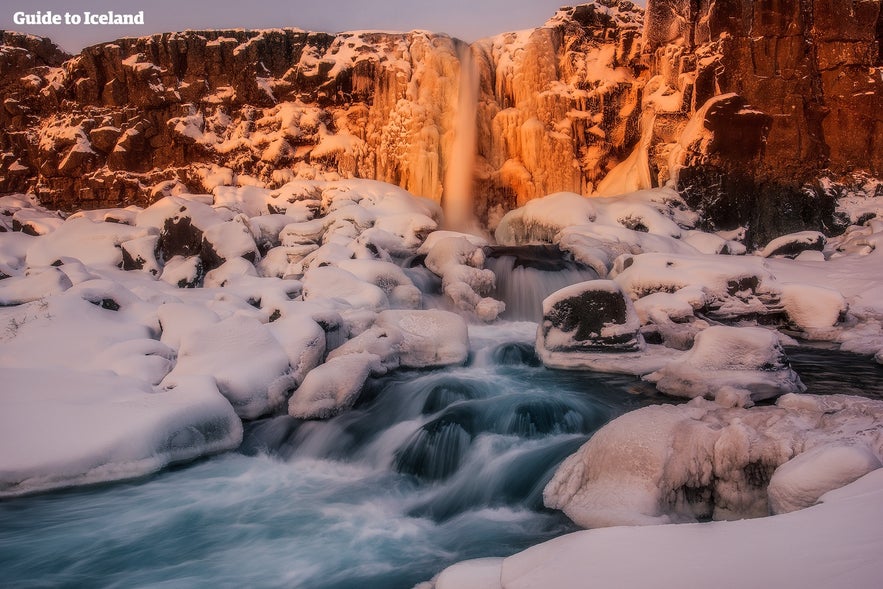
This 300-km drive takes you to the three most sought-after attractions in Iceland, starting with the Thingvellir (Parliamentary Fields) National Park, a UNESCO World Heritage Site where you can walk through the rift valley between the North American and Eurasian tectonic plates.
Thingvellir is Iceland's national shrine, not only because of the area's geological significance but also because of its historical importance. The Icelandic parliament, Althingi, was established there in 930 AD and held its sessions there until 1799, when it was discontinued before being restored in Reykjavik in 1844.
The second stop of the Golden Circle is the magnificent valley of Haukadalur, a geothermal area of raw energy that is home to the geysers Strokkur and Geysir, as well as numerous otherworldly fumaroles, mud pots, and hot springs.
Geysir's eruptions propel boiling water more than 70 metres into the air, but in recent years this ancient giant has remained mostly dormant, leaving the stage to his mighty neighbour, Strokkur, who bursts from the frosty ground every 10 minutes, spouting incredible amounts of hot water 20 meters into the cold winter air in a steaming demonstration of the earth's awesome thermal potency.
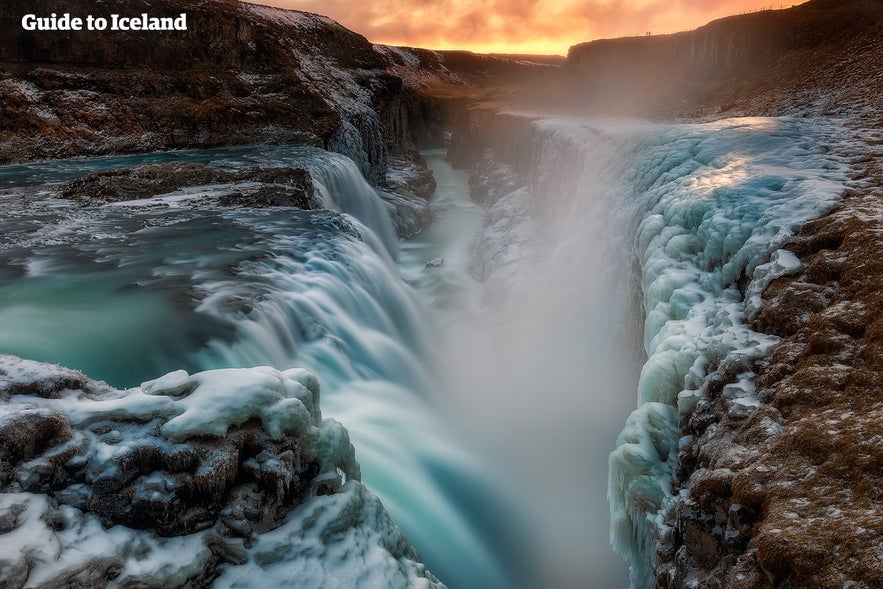
A footpath leads to a platform from where you can view this tremendous force of nature in all its glory, bathed in the orange hue of winter twilight.
When driving back to Reykjavik, you have the choice of visiting the scenic town of Hveragerdi—known for its many greenhouses and botanical gardens, and its geothermal potency—or enjoying a delicious lobster dinner in the excellent and highly renowned seafood restaurant Fjorubordid in the charming seaside village of Stokkseyri in the Thjorsarhraun Lava Field.
Day 3 - The South Coast
The third day of your journey takes you 120 km southeast of Reykjavík, where the whispering Seljalandsfoss, one of Iceland's highest waterfalls, drops with an eerie but magnetic hiss over 60 meters from the cliffs above into the vast valley below.
Flowing from Seljalandsa—a glacial river that originates in the volcano glacier Eyjafjallajokull— Seljalandsfoss ranks amongst Iceland's most popular attractions.
What makes this tranquil waterfall unique is that the shape of the cliff over which it falls allows you to walk behind the cascade, wherein a misty cavern where you can watch the winter sun start its short journey across the freezing horizon.
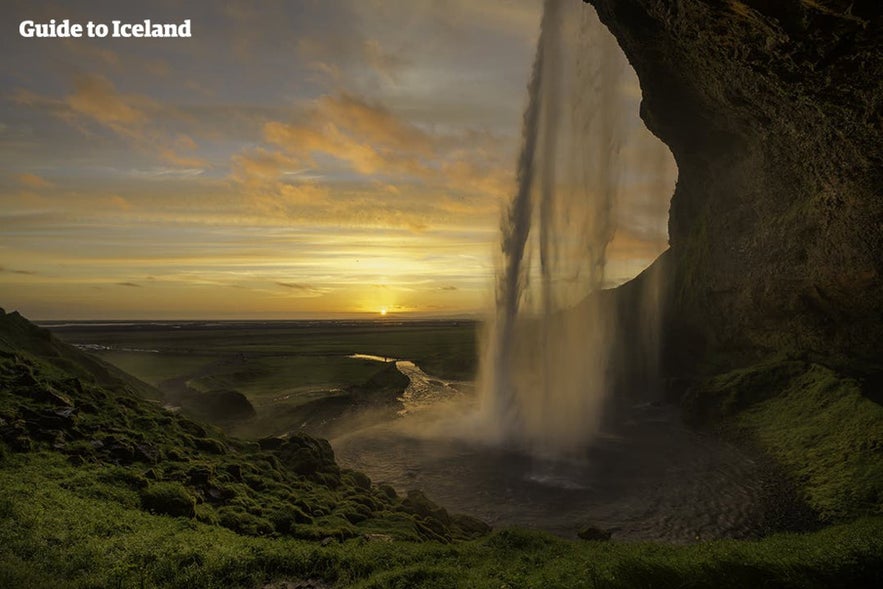
Your next stop of the day is Seljavellir, where you park your car and take an easy footpath towards Seljavallalaug, one of Iceland's oldest outdoor swimming pools.
Built in 1923, the pool is attached to the wet roots of an ancient mountain where it absorbs the natural warm water that perpetually flows from the glistening hillside.
Seljavallalaug is South Iceland's most iconic human construction, in which you can bathe in the lukewarm water, surrounded by an otherwise untouched ethereal valley of towering cliffs and rugged mountain ridges.
A short distance away is Skogafoss, one of Iceland's largest and most powerful waterfalls. With an astounding width of 25 meters, Skogafoss' 60-meter drop produces such enormous amounts of spray that a single or double rainbow is regularly seen on bright winter days.
After a close encounter with this magnificent phenomenon, you should visit the Skogar Museum, a cultural heritage foundation that features more than 15,000 regional folk craft artifacts exhibited in 6 historic buildings.
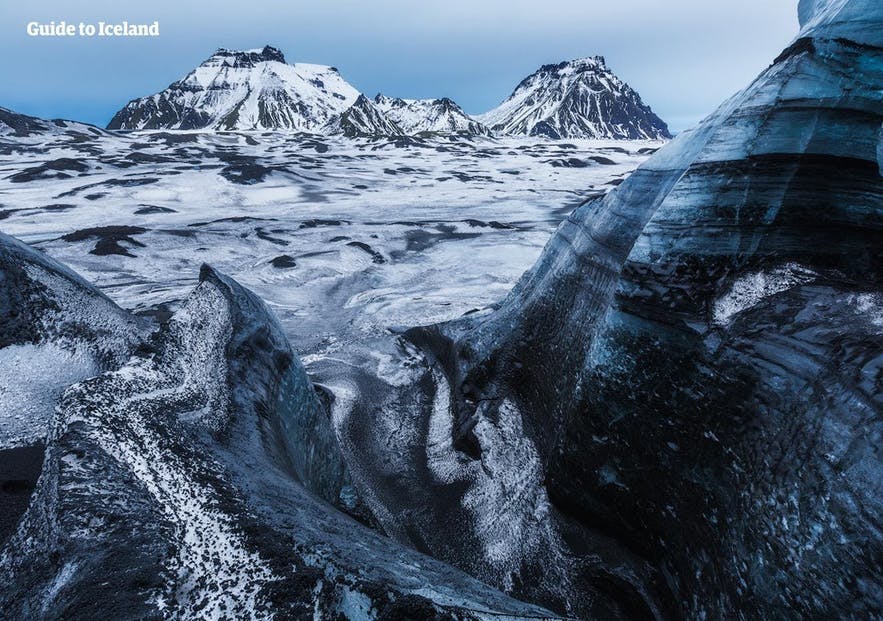
You would do well to crown the day with a guided Solheimajokull Glacier walk onto the glacier tongue that extends from the Myrdalsjokull Glacier and onto the black sand expanses of the southern lowlands.
Although this excursion does not require special skills or prior experience, it allows you to explore a breathtaking ice cap that contains countless ice sculptures, water cauldrons, black rock ridges, and yawning blue crevasses.
After spending over three hours on the glacier, you head towards the neighbouring Vik i Myrdal, Iceland's southernmost village, where you enjoy a late dinner before checking in to the accommodation you have booked for a single night.
Day 4 - A Glacier Lagoon and an Ice Cave Adventure
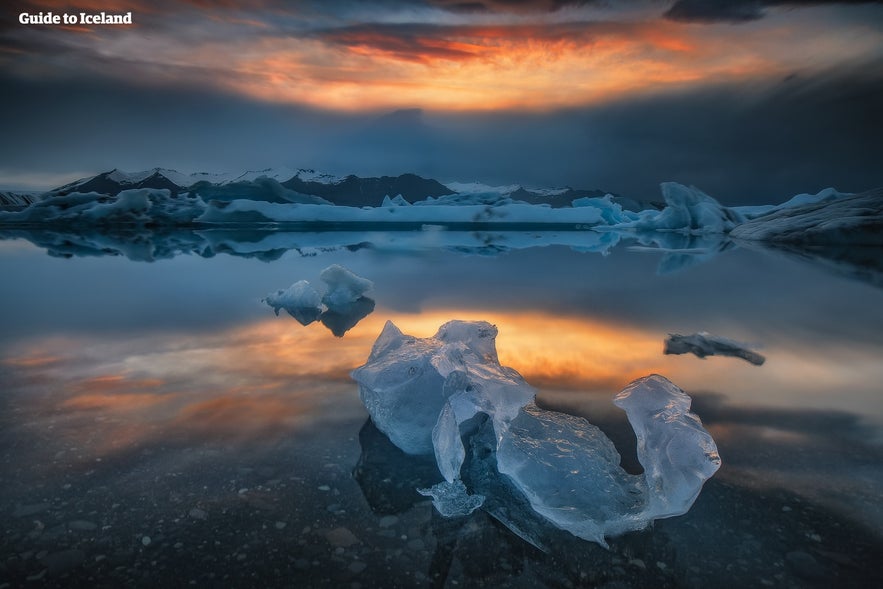
After driving 190 kilometers east of Vik, you stand in the mighty presence of countless majestic icebergs that drift like heavy clouds on the azure blue Jokulsarlon Glacier Lagoon.
This is a place of ancient peace and great power, where birds come to rest, and countless seals swim undisturbed about the mountains of ice that have broken from off the Breidamerkurjokull Glacier in the north.
Jokulsarlon tours are one of Iceland's most popular travel activities, attracting great crowds during the summer months of the high season. In wintertime, however, you will be one of only a handful of people there, free to enjoy an uninterrupted moment of silence in nature's tender embrace.
At noon, it is time for you to embark on the supreme adventure of your five-day journey, when a guided tour will take you from Jokulsarlon and into Vatnajokull, Europe's largest glacier.
During the summer months, subterranean meltwater rivers run through the glacier ice cap, forging an enormous underground network of glistening ice channels.
And in winter, when this glacier is finally drained of the waters of summer, an ethereal labyrinth of abyssal caves, azure tunnels, and deep blue arteries becomes accessible.
These ice caves are a rare phenomenon. Ice cave tours let you journey into the vascular system of the living icecap, a once-in-a-lifetime adventure that is sure to leave lasting memories. Note that they are usually only open from November to March, with a few operators starting tours in mid-October.
One of the most amazing ice cave experiences in Iceland is this ice cave tour in the Vatnajokull Glacier, which begins at the Jokulsarlon Glacier Lagoon. The highlight of the trip is stepping inside the crystal blue ice cave, a natural wonder formed by centuries of glacial movement. Towering walls of pure ice glow in vivid shades of blue, their smooth curves and delicate textures shaped by meltwater streams over time.
After you have explored the interior of Europe’s largest glacier, you will be transported back to Jokulsarlon, from where you head towards your last destination of the day, an icy black sand gem situated south of the lagoon.
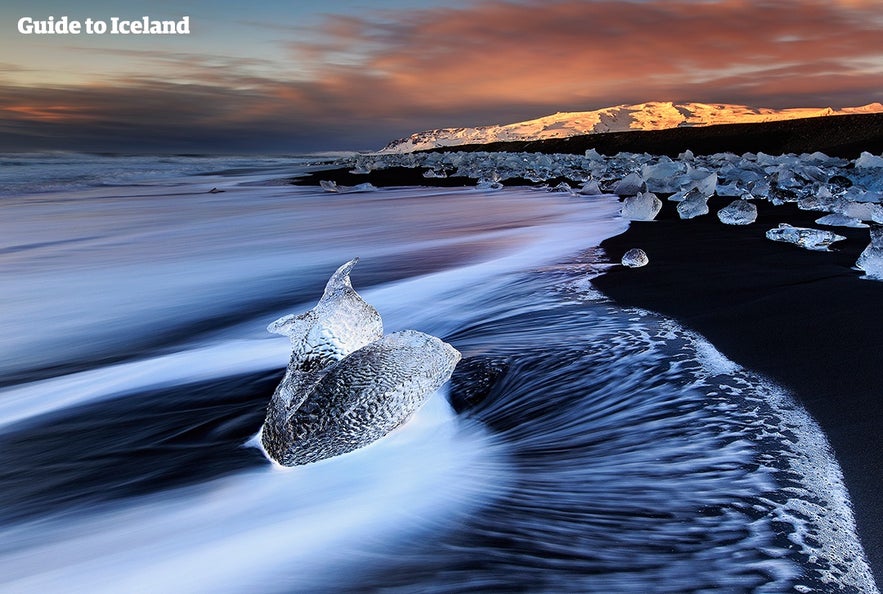
At dusk, horizontal streaks of pink sunlight will illuminate the ice, transforming the black sands into the glowing field known as the Diamond Beach.
You spend your last moments of daylight immersed in the utterly surreal panoramic vistas, breathing in the fresh admixture of glacier and sea air, before driving through the black night back to Reykjavik.
Remember to be on the lookout, the northern lights might always appear in the winter sky above you.
Day 5 - Farewell from the Reykjanes Peninsula
On your last morning in Iceland, you pack your bags, check out, and drive onto the Reykjanes Peninsula, where the highly volcanic Mid-Atlantic Ridge stretches from under Iceland's interior and out into the open seas.
This neck of frostbitten volcanic expanses is the open wound that marks the cleft where the Eurasian and North American tectonic plates are perpetually drifting apart.
This is today's domain, where you can pick and choose between numerous sites, equally stunning to behold.
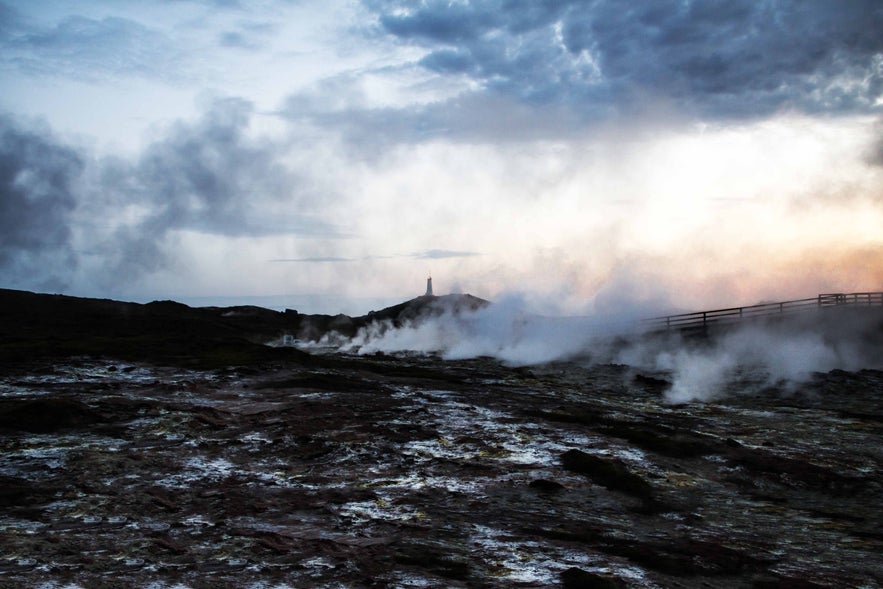
From east to west, the whole of the peninsula is covered with black and red lava fields, explosive craters and fierce volcanoes, and on its southern tip, at Sandvik, there is even a lonely footbridge over which you can walk between the two separating continents.
The relatively small area is beset with geothermal marvels such as Gunnuhver, Lake Kleifarvatn, and the Seltun Geothermal Area of Krysuvik, where bubbling mud pots, boiling pools, solfataras, fumaroles, and hot springs bestow a multicoloured hue upon the frosty soil.
- See also Reykjanes Peninsula Private Tour
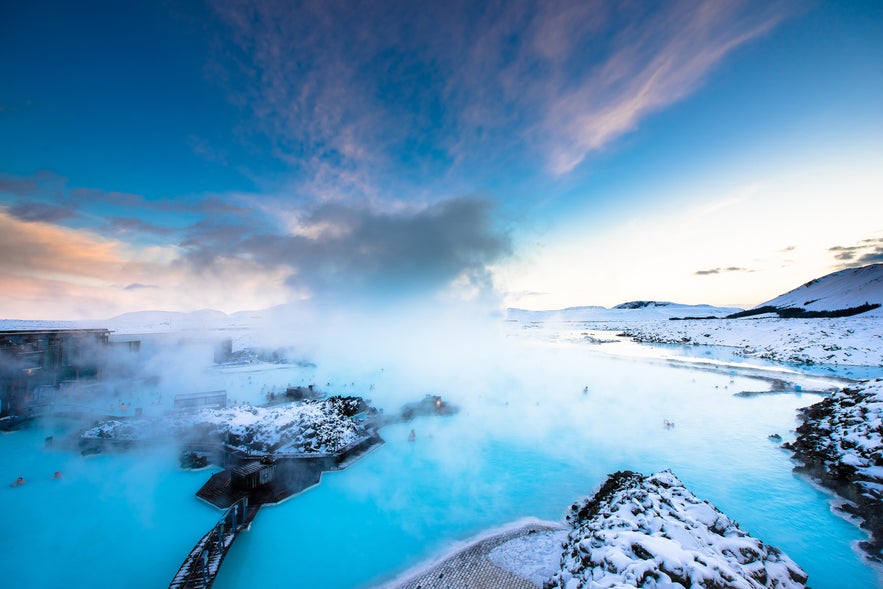
After you have explored the peninsula, you should make your last stop at the Blue Lagoon, the single most popular destination in Iceland.
Named in 2012 as one of National Geographic's "25 Wonders of the World," this geothermal spa is located in the middle of a lava field in Grindavik, a 25-minute drive away from Keflavik Airport.
The Blue Lagoon provides the perfect ending to a short but eventful winter stay in Iceland. You bathe in the warm and soothing water under the winter sky and bid farewell to this strange volcanic island of frost and snow.
May your journey home be pleasant and safe, and may we see you again on a sunny summer afternoon.

